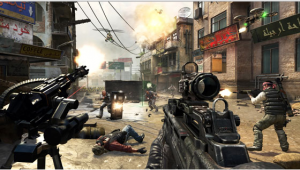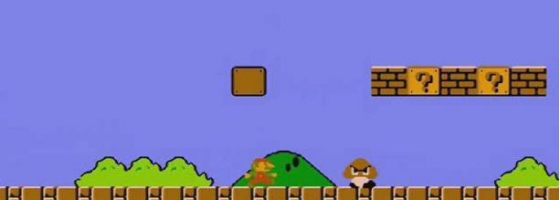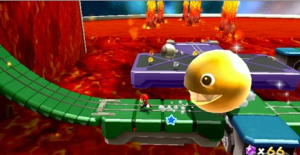This is another one of those posts that’s meant to satisfy my own curiosity and help vent some frustration. Since wanting to get into the Game Industry in the mid 90s, studying books on design in college and writing about it online, there is one element about the industry that is really frustrating. And that is the lack of standards or foundational rules about game design.
This is the byproduct of our decentralized our industry which has become a blessing and a curse.
How to Get Started?
As we’ve talked about time and time again, the video game industry has no centralized core. This is due to how the industry has grown and spread thanks to the rise of digital distribution and the ease of development tools.
On one hand this is great as it makes it very easy for anyone to get into the industry without needing formal training or the blessing from some higher authority. But the problem is that for many people, there is no step one in how to become a game designer.
I’ve heard this before from people who say that you aren’t a game designer until you make a video game, but that raises another question: What is a video game? We could get into long philosophical debates on that one question and no one has a solid answer to it.
Is a video game a ten second flappy bird clone? An 80 hour RPG? A ten minute experimental game? And do you have to earn a minimum amount of money for the game to be considered a success and earn your title as game designer? And we haven’t even mentioned non digital games like CCGs and board games.
When we look at other industries no matter what, there are always standardized foundations to start off with. If you want to be a car mechanic, you need to understand how a car works just as much as someone wanting to become a surgeon needs to be able to be good at cutting and understanding human anatomy.
But those industries then have ways for people to specialize and improve their skill sets. So that mechanic could go into restoration and work on restoring beat up cars into ones that look brand new. Or that surgeon could go into neurosurgery, heart surgery etc. Still, the basic path to reaching those points of specialization is the same: Everyone starts with a foundational set of skills that lead to them specializing in a specific area.
But with the Video Game Industry, there are no basic steps. Every college agrees that you need to have an understanding of programming and art to start a track into the Game Industry, but what about design?
Being able to draw characters and program game engines are certainty talents, however that doesn’t teach anyone about progression models, game balance, monetization and etc.
If you ask a hundred mechanics or doctors how they got started in their profession, chances are they will give you a similar starting path and knowledge. However if you talk to just ten different game designers, they will each have a different story of how they got to where they are. Maybe they started a business with a friend, or got hired because they knew someone or they got hired with no programming or art skills and work based just on their writing and design knowledge alone.
There have been several books that are considered good reads for people interested in game design: A Theory of Fun and Fundamentals of Game Design. But again, while these books were written by people who have a lot of knowledge in the Industry, they are not considered “required reads” or testable materials for anyone who wants to become a game designer.
And part of this problem is about “The Wild West” mentality of the industry and the lack of guiding principles and leadership.
Who’s in Charge?
This goes back to the issue of having a decentralized industry. While we do have some sites and organizations that are bigger than others like the IGDA, ESA and Gamasutra, they are not recognized as our leaders or important sites to know. Again, anyone can get into the Game Industry and there is no one that really governs us.

Designers like Ken Levine have multiple skill sets, but there is no standard path for becoming a game designer.
We can say that the ESRB has a major stake in how games are being made and sold, but in today’s digital world indie developers don’t have to listen to them.
And that’s the blessing and the curse: there are no rules that we have to adhere to in the Game Industry.
When I was growing up, I knew that I wanted to design games for a living but I had no idea what the process to get there. A programmer will say learning how to code, but which engine or programming language do you specialize in? Not to mention that being a programmer means that you also have to keep up with the changes to engines and new programming languages. And an artist will say to draw and make use of artistic tools but if you’re like me with no artistic talent that’s not an option.
My skill set is and always has been understanding game mechanics and design with an analytical eye. However how do you do just that and get into the industry? Most people will that it’s not possible and that you should just “make a game” and get in that way. But as we’ve talked about, making a game can mean anything depending on who you talk to.
And that’s why another goal of Game-Wisdom is to become a centralized source for understanding game design. So that we can have agreed upon standards of what goes into a video game and how mechanics should function. On a recent repost I did on Gamasutra, people were arguing about the definition of the term RPG and how it has changed since the old days. When we have a genre that has been around almost since the heyday of the industry and people still don’t know what to call it, something isn’t right.

While series like Call of Duty are popular, I wouldn’t consider their game design unique enough to warrant someone studying it.
I would love to be able to write like a game design encyclopedia which would be a more involved version of the one that I started a blog series at the start of Game-Wisdom. That would showcase the major elements and important games of the game industry.
To end this post I have a few questions for those of you reading this. Can you think of any laws or foundations of game design? Are there any games that you feel are not only great, but are must plays that should be studied by game designers? And lastly, how would you define a game designer and the required skill sets?



